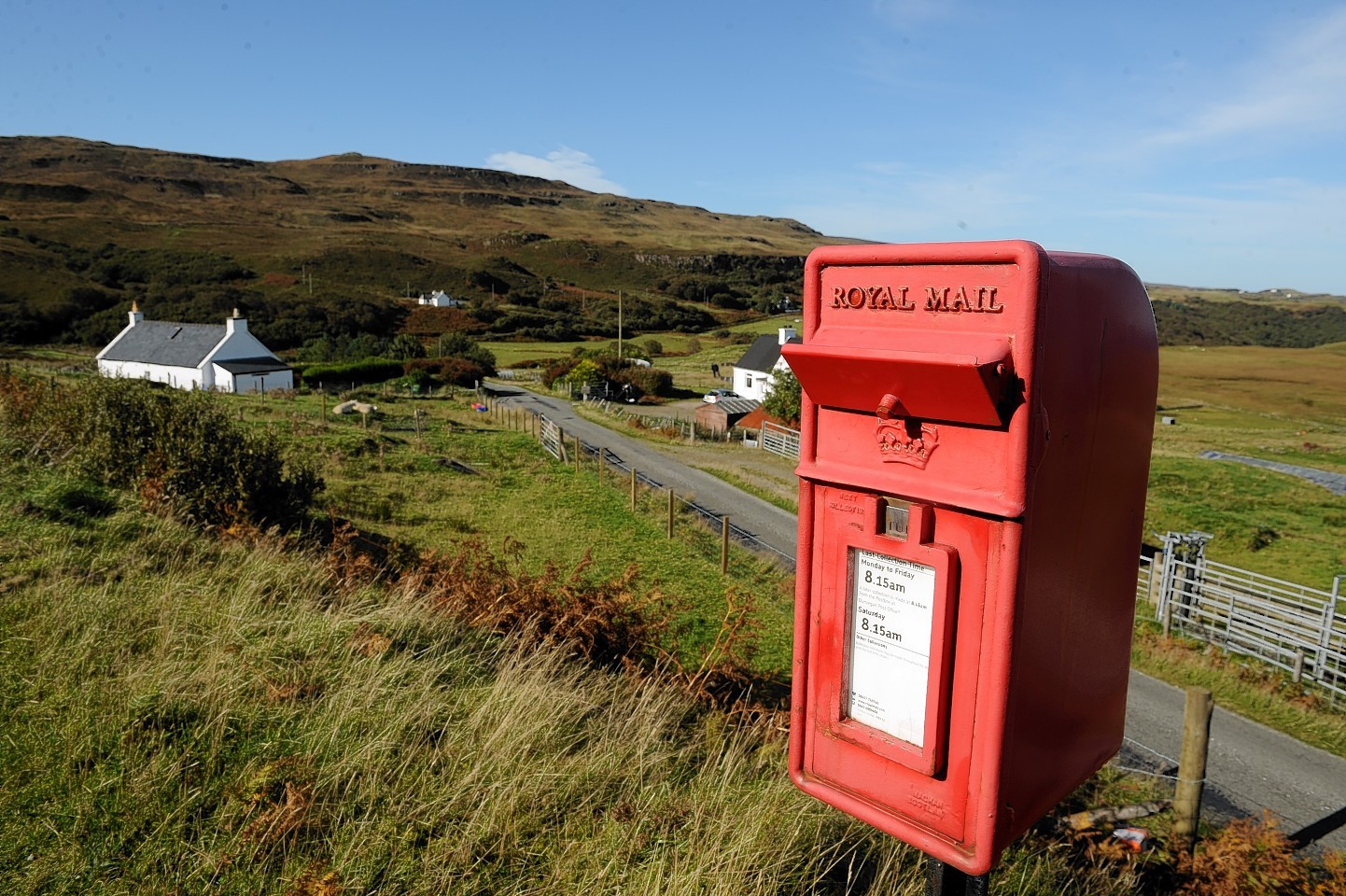One million rural Scots are still being hit with unfair delivery charges – and the fees charged by retailers are rising.
A new study by Citizens Advice Scotland (CAS) reveals that surcharges which penalise people for living in the north and north-east continue to increase.
The finding emerged despite the proportion of companies charging their customers extra for delivery to rural areas having fallen in the last three years.
The report finds consumers in the Highlands and islands now pay 17.6% and 15.8% more respectively than in 2012.
Accounting for inflation, the figures are 10% and 8.3% higher than three years ago.
Local politicians last night branded it an “enormous problem” and demanded action from UK ministers.
Despite the rise in the level of the charges, the percentage of the 534 retailers surveyed who demand extra has fallen over the same period, from 49.8% to 44.1% in the Highlands and 62% to 53.1% in the islands.
CAS consumer spokeswoman, Sarah Beattie-Smith, said the problem of high delivery charges was affecting customers in northern Scotland more than in other areas of the UK, despite average delivery charges falling in real terms.
“So these consumers pay roughly four times the average costs for delivery.
“Together we can and must achieve a fairer deal for consumers.”
The report, which is an update on the 2012 Postcode Penalty publication, also finds 3.8% of retailers still exclude parts of the Highlands from their offering.
This rises to 10.9% for some areas in the Scottish islands, although the number of companies refusing to deliver to remote areas is down on three years ago.
CAS is calling on the UK Government to use the new Consumer Rights Act to educate businesses about their obligations and educate customers about their entitlements.
It also wants the Conservatives to consider whether consumers could be better served in the parcel delivery market by revising the universal service obligation (USO) to take account of the increased importance of parcels in the modern world.
In addition, it recommends the Scottish Government considers extending the Road Equivalent Tariff fare structure to cover vehicles over six metres (19.6ft) in length, in order to help reduce the costs of delivering goods to the islands by ferry.
And it urges Scottish ministers to look at opportunities for innovation to reduce the cost of delivery to the islands through consolidation in the final miles.
Of the delivery operators it asks they ensure the full range of options – including collection from a post office, a locker or local shop – are made available to as many retailers, and therefore their customers, as possible.
It also urges them to reduce rural delivery prices when costs are brought down through increased final mile or delivery point consolidation.
Retailers are advised to tell consumers which delivery company will be used before a purchase is made and asked to consider simplifying and reducing their pricing structure.
The SNP’s Drew Hendry, who will raise the issue in the House of Commons later today, said for many businesses online shopping was now a necessity.
“It has been my experience that local communities want to do what they can to protect residents in rural areas from any form of inequity,” added the Inverness, Nairn, Badenoch and Strathspey MP.
“Being unfairly discriminated against by some online sellers due to their place of residence is no different.
“Our communities are open to looking at innovative ways to support delivery to their towns and villages and we must look at ways to allow them to do this.
“Consumers should automatically get the choice of the cheapest delivery option and the UK Government needs to find ways to enforce this.”
Labour’s Lewis Macdonald welcomed the recommendations but said they did not go far enough.
He said it was an issue for the north-east too, a point picked up by the report which notes the area defined as Highlands and islands can extend as far south as Stonehaven, Perth and Helensburgh.
The north-east MSP also insisted private delivery companies should have the same obligation as Royal Mail.
He said: “This is the fault of the UK Government, which has actively encouraged private competitors to encroach on the turf of Royal Mail.
“Royal Mail is the only service you can guarantee will never discriminate.”
Northern isles MP Alistair Carmichael said parcel delivery remained “an enormous local problem” for businesses and residents.
He added: “It is also clear from the recommendations of this report that there is no single solution to this problem.
“Governments in London and Edinburgh should get together and work with the businesses concerned to fix this once and for all.”
A UK Government spokeswoman said: “This report rightly highlights the need for online businesses to provide clear information about their delivery charges to consumers. It makes business sense for retailers to listen to the needs of consumers in all parts of the country.”
